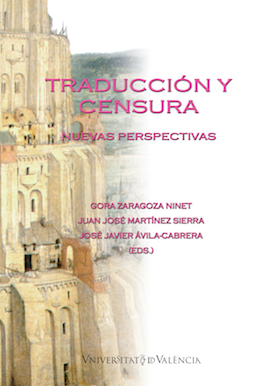Censura 2.0 y Holocausto: el control de contenidos y su impacto en la imagen transnacional del genocidio nazi
DOI:
https://doi.org/10.7203/qf-elit.v20i0.7537 Resum
Resum
En els sistemes democràtics que imperen en occident, la censura stricto sensu està prohibida. No obstant això, la revolució digital ha impulsat l'aprovació de normes per a la supervisió, el filtrat i el bloqueig de contingut que restringeixen la difusió d'informació. El procés és singularment alarmant quan opera per mitjà de la traducció, ja que és en ella en qui, en un món cada vegada més globalitzat, recau la responsabilitat de materialitzar el contacte entre cultures. Partint dels conflictes que creen les diferents lleis que criminalitzen la negació de l'Holocaust, analitzarem l'impacte del control de continguts en la imatge transnacional del fet històric, que varia en funció d'on es projecti.
Paraules clau: censura; traducció; Holocaust; memòria; negacionisme.
 Descàrregues
Descàrregues
Descàrregues
Publicades
Com citar
-
Resum1222
-
PDF (Español)857
Número
Secció
Llicència
 Este obra está bajo una licencia de Creative Commons Reconocimiento-NoComercial-SinObraDerivada 4.0 Internacional.
Este obra está bajo una licencia de Creative Commons Reconocimiento-NoComercial-SinObraDerivada 4.0 Internacional.
Tots els documents inclosos a OJS són d'accés lliure i propietat dels seus autors i/o institucions editores, i per tant, qualsevol acte de reproducció, comercialització, comunicació pública o transformació total o parcial necessita el consentiment exprés i escrit d'aquests.
________
Authors who publish with this journal agree to the following terms:
- Authors retain copyright and grant the journal right of first publication with the work simultaneously licensed under a Creative Commons Attribution License that allows others to share the work with an acknowledgement of the work's authorship and initial publication in this journal.
- Authors are able to enter into separate, additional contractual arrangements for the non-exclusive distribution of the journal's published version of the work (e.g., post it to an institutional repository or publish it in a book), with an acknowledgement of its initial publication in this journal.
- Authors are permitted and encouraged to post their work online (e.g., in institutional repositories or on their website) prior to and during the submission process, as it can lead to productive exchanges, as well as earlier and greater citation of published work (See The Effect of Open Access).




